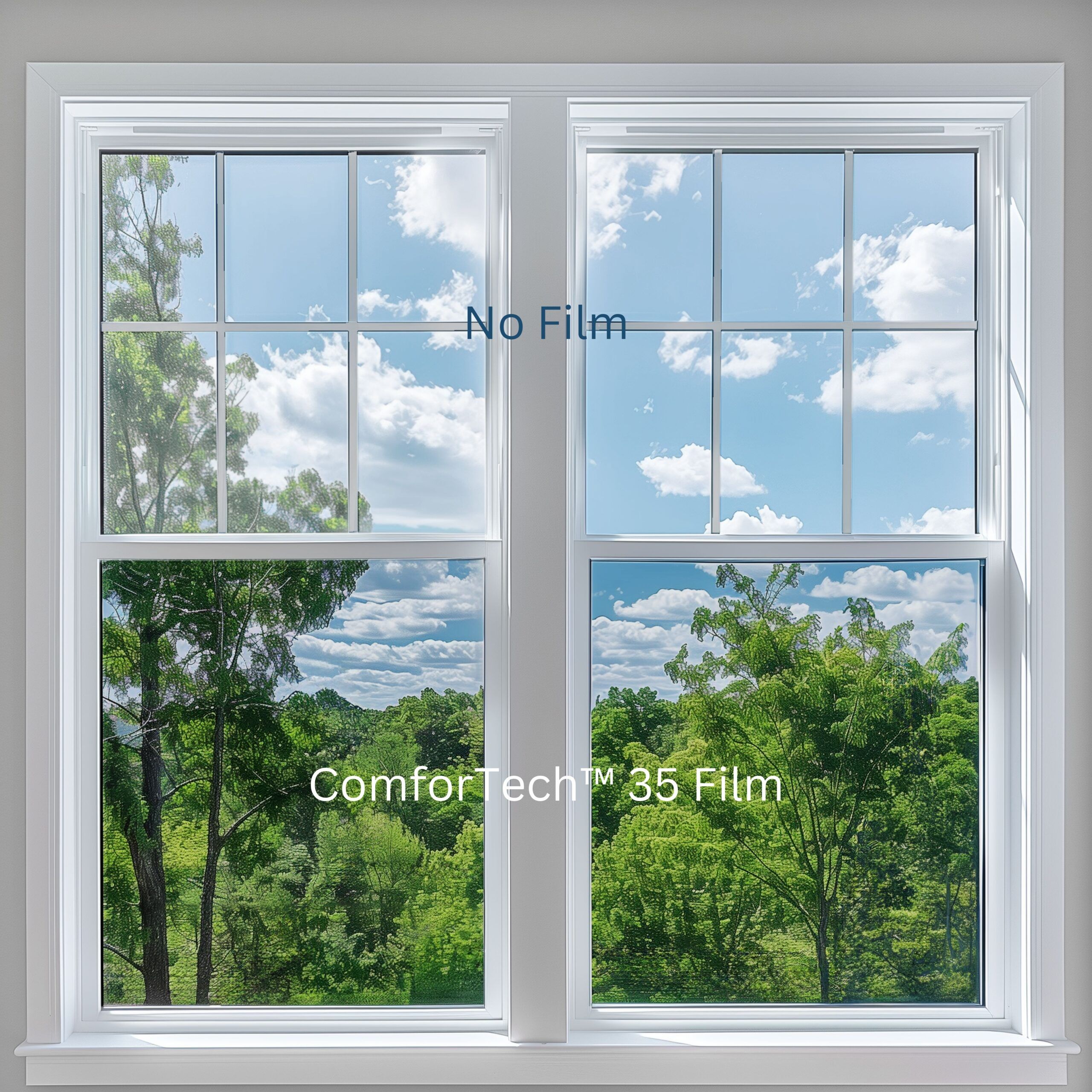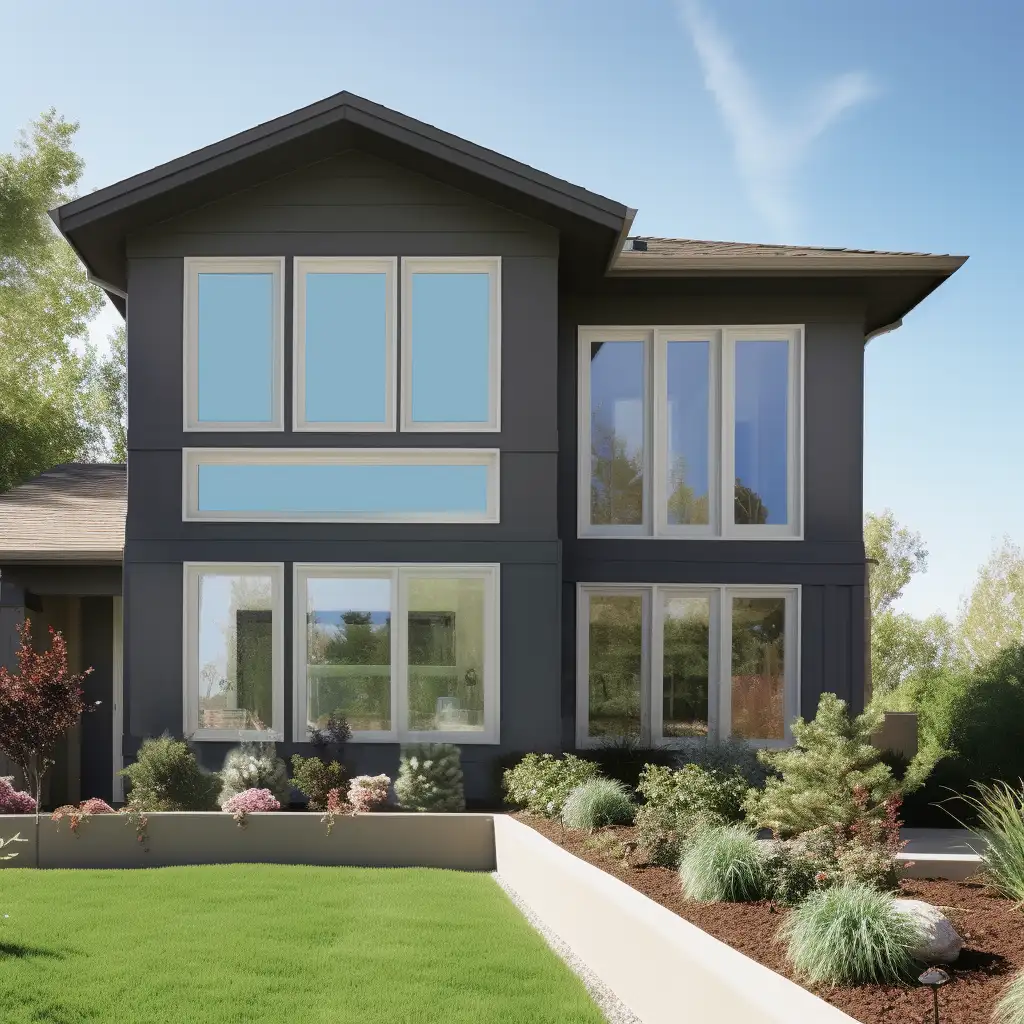Get Expert Guidance on Choosing the very best Residential Window Tint for Your Needs
Get Expert Guidance on Choosing the very best Residential Window Tint for Your Needs
Blog Article
Exactly How Residential Home Window Tinting Improves Your Home's Energy Efficiency
Residential window tinting offers a compelling solution for home owners seeking to enhance energy efficiency within their living areas. By applying specialized films to home windows, it effectively lowers warm transfer, thereby stabilizing interior temperature levels and lessening the need for excessive heating or cooling.
Recognizing Window Tinting
Recognizing window tinting is essential for home owners seeking to improve both comfort and energy efficiency in their space. Residential Window Tint. Home window tinting includes the application of a thin film to the inside or outside surface area of glass home windows. This movie can considerably regulate the quantity of sunshine and warmth that gets in a home, hence affecting indoor climate conditions
There are numerous types of home window tinting movies offered, each with unique properties. The performance of home window tinting is typically determined by its Visible Light Transmission (VLT) portion, which indicates just how much light can pass via the film.
Benefits of Power Effectiveness
Home window tinting not only boosts looks but likewise plays a significant function in enhancing energy effectiveness within property rooms. By minimizing warm transfer via windows, colored films develop a more secure interior environment, which can lead to substantial reductions in energy consumption for heating & cooling. This energy effectiveness translates right into reduced energy bills, giving home owners with significant lasting savings.

In addition, home window tinting enhances the convenience of living rooms. By decreasing glare and obstructing dangerous UV rays, colored home windows develop a more positive environment, which can result in enhanced health for passengers. The security against UV rays also helps preserve furniture and flooring from fading, adding to the longevity of household things.
Exactly How Tinting Works
Tinting movies run through a mix of advanced materials and modern technologies made to control the quantity of solar power going into a home. Mostly made up of polyester, these films frequently include metal or ceramic fragments that soak up and mirror heat. This double ability allows them to considerably reduce the penetration of ultraviolet (UV) rays and infrared radiation while allowing noticeable light to go through.
The efficiency of home window tinting is gauged by its solar heat gain coefficient (SHGC), which suggests just how much solar power is sent through the window. Lower SHGC worths are more effective as they denote greater warm denial. Additionally, home window tints can feature a selection of tones, permitting house owners to personalize their aesthetic preferences while improving energy effectiveness.
Moreover, these films work as an obstacle, avoiding heat loss throughout cooler months by reflecting indoor warmth back into the living space. This thermal insulation result matches the cooling benefits acquired during warmer months, adding to a balanced interior climate year-round. By managing solar power effectively, household home window tinting not just boosts comfort yet also plays a crucial function in more tips here lowering energy consumption and lowering utility expenses.
Choosing the Right Color

There are numerous kinds of window films available, including dyed, metalized, and ceramic. Colored movies are cost-efficient however may have restricted sturdiness. Metalized movies offer far better heat denial however can hinder digital signals. Ceramic films supply excellent heat control without jeopardizing exposure and are highly sturdy, making them a popular selection.
Visible light transmission (VLT) is another essential variable, as it indicates the amount of all-natural light that can go through the colored glass. Homeowners should choose a tint with a VLT that complements their illumination preferences while still giving appropriate glare reduction.
In addition, examining the solar warm gain coefficient (SHGC) can aid figure out how well a tint can block warmth from sunlight. A reduced SHGC indicates better warmth control, eventually enhancing energy efficiency.
Setup and Upkeep Tips
Correct installation and maintenance are crucial elements in making the most of the advantages of domestic window tinting. Specialists additionally use specialized devices and techniques, which can improve the durability and effectiveness of the color.
Adhering to installment, maintenance is important to lengthen the life of the window film. It is advised to wait at least 30 days prior to cleansing the colored home windows to permit the sticky to heal totally.
Furthermore, regular assessments are helpful. Inspect for any type of peeling or bubbling, which might show improper setup or wear in time - Residential Window Tint. Dealing with these issues without delay can stop additional damages and keep energy performance. By sticking to these installment and upkeep tips, home owners can guarantee their home window tinting remains to give significant power cost savings and comfort for many years to come.
Conclusion
In conclusion, residential home window tinting serves as an efficient option for boosting energy efficiency within homes. By reducing heat transfer and obstructing unsafe UV rays, window films add to reduce power usage and enhanced indoor convenience.
Home browse around these guys window tinting involves the application of a thin film to the inside or exterior surface of glass home windows. By decreasing heat transfer via home windows, colored movies create a much more steady interior environment, which can lead to significant decreases in power consumption for home heating and cooling.The efficiency of window tinting is determined by its solar warmth gain coefficient (SHGC), which suggests how much solar power is sent with the window. By handling solar energy properly, property home window tinting not just boosts comfort but additionally plays an important role in decreasing power intake and decreasing energy expenses.
By reducing heat transfer and obstructing hazardous UV rays, window movies contribute to reduce energy usage and improved indoor comfort.
Report this page